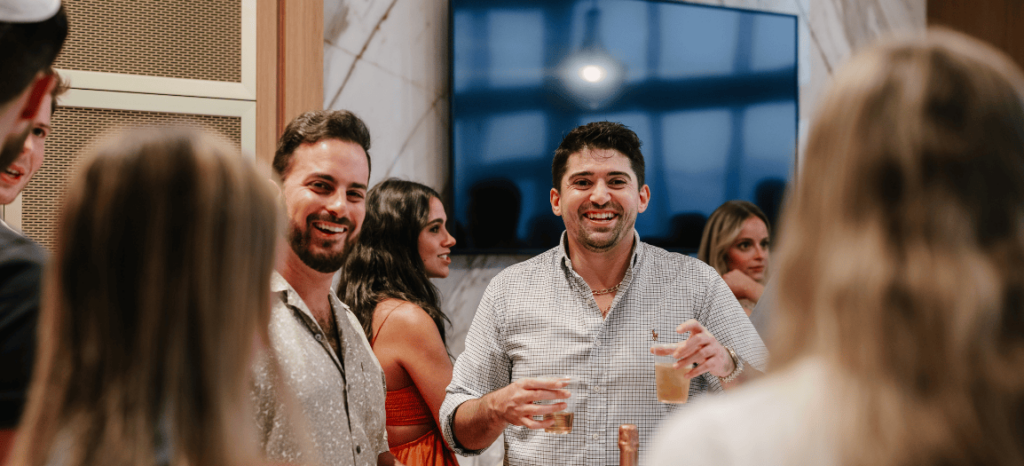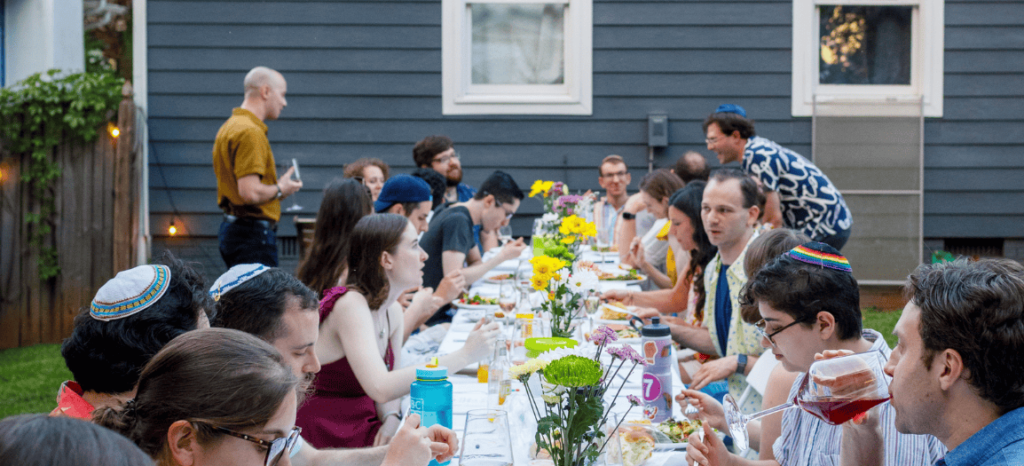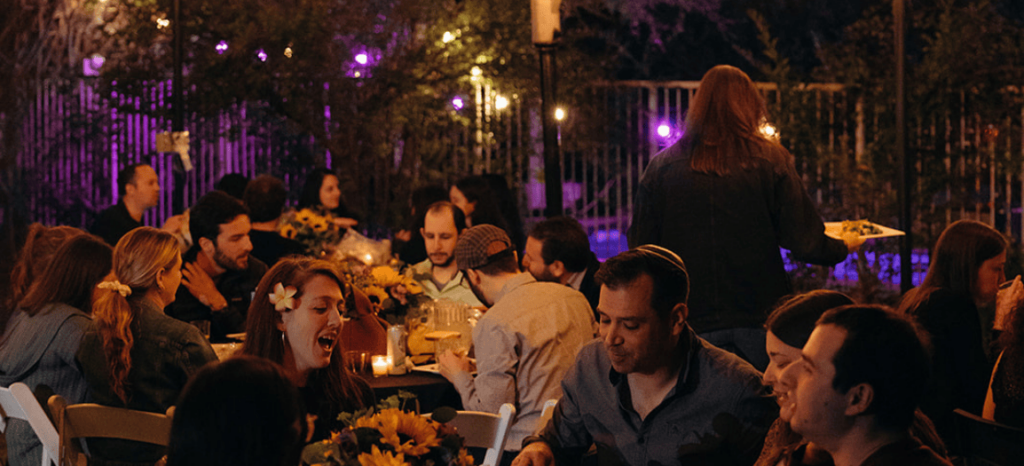Introduction
When OneTable was founded in 2014, it was created specifically to engage those in their 20s and 30s — at the time, Millennials (born 1981-1996). We used a human-centered design approach that baked participant research right into our development so that we could offer the most impactful programming for this group.
Ten years later, the population has shifted and now nearly half of our most active participants are part of Gen Z (born 1997-2012). When we analyze their participation, dinner descriptions, and even their table decorations, we see distinct preferences that separate them from the Millennials. To continue to offer the best programming we can, we knew we needed to find out more about Gen Z’s motivations, needs, concerns, and the ways they relate to being Jewish. Click here to view the report.
Highlights
“I get antisemitism at school, at work, with patients, with people I thought were my friends, and even with distant family members. It can be overwhelming and it’s hard to find space in my mind for other stuff. I am trying to prioritize moments of Jewish joy as much as I can.”

Research Findings
OneTable’s Gen Z participants (born after 1997, oldest are 27 in 2024) report decreasing social circles and increasing interest in in-person events. They seek safe spaces, nuanced and specific conversations, and an oasis from the antisemitism and divisiveness they are experiencing in their physical and digital lives.
OneTable has seen this longing for spaces in which they can feel comfortable tackling tough conversations. There’s a hunger for trusted OneTable resources, and a yearning for an expanded concept of “peer-led Shabbat” to include OneTable professionals as local hosts.
In turbulent times, OneTable’s Gen Z participants are leaning into Shabbat dinner — another generation discovering that more than they keep Shabbat, the oasis of Shabbat keeps them.
“It’s honestly nice knowing that there’s an organization that’s here for us and here to foster inclusion in the Jewish community…”

Background + Methodology
Originally, we planned to field this research in fall 2023, but with the attacks on October 7 we postponed and instead doubled-down on weekly participation surveys and one-to-one interviews with active participants to find out about their needs and concerns. During this time, external research like polls from Hillel and NPR mirrored what we were hearing: October 7 marked a pivotal shift in participants’ lives. It was a defining moment for them, and much like we saw previously with September 11 and again with the global COVID-19 pandemic, there is now a defined before and after.
With support from The Jim Joseph Foundation, in May 2024 we began the research process: analyzing existing data, interviewing OneTable staff and key participants, and reviewing related research questions from the field. We conducted the survey from May-June 2024, and subsequent focus groups from June-July, 2024.

